10 Things We Learned From WWE SummerSlam 1997
The Piledriver that almost derailed Stone Cold Steve Austin...

Jul 30, 2018
When did the Attitude Era begin? Scholars, professors, and experts have debated this fine point for more than a decade, and there seems to be no official consensus. If you're inclined to believe WWE video games, then the Attitude Era began around the time of SummerSlam 1997, right around the time Shawn Michaels' steel chair met The Undertaker's forehead. Ahh, WWE '13 and its Attitude Era mode - how you brought lapsed wrestling gamers back like the prodigal hipster fans we all are.
Whether or not you agree that SummerSlam 1997 birthed Attitude as it would become known, it's pretty clear just how starkly different this SummerSlam felt from the one that preceded it. Michaels was no longer a white-meat babyface, nor was Bret Hart (though he was absent from the 1996 show). While SummerSlam '96 had a few harrowing moments of unfettered violence, 1997 had a more intriguing grimness surrounding the night. WWE was venturing deeper into uncharted waters through its embrace of spoken hostilities and shades-of-grey caricaturing.
Sadly, the event would become most infamous for a rising star. Stone Cold Steve Austin suffered a near-career-ending injury, making SummerSlam 1997 a landmark night in a way that was not intended. There are a number of historical notes from that tenth SummerSlam, but none would prove more significant.
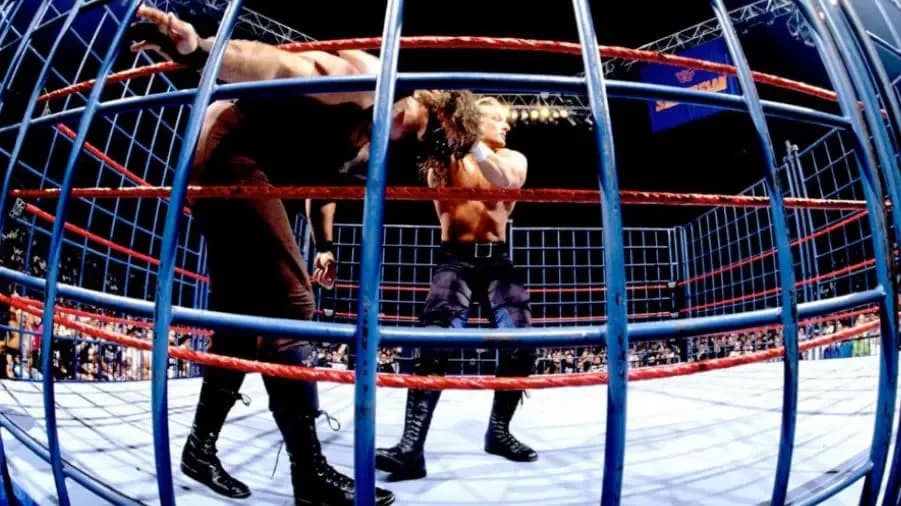
It used to be that SummerSlam would take place on the final Monday of August, something of a seasonal last hurrah for school-age fans before making the trudge back to their studies come September. The year 1997 would see WWE take a different tack with their pay-per-view calendar, with SummerSlam earning an unexpected calendar placement.
The 1997 show took place on Sunday, August 3, by far the earliest SummerSlam ever (the second earliest would be 2011's show, which occurred on the 14th).
Beginning in May 1997 and going through to the end of the year, WWE made sure that all of their pay-per-views would take place prior to WCW's monthly offerings, hoping to convince fans that only had enough money to buy one show to pick theirs instead. The SummerSlam '97 buyrate was up nearly 50 per cent from the year before, while the ensuing Survivor Series would climb 26 per cent from 1996. Nonetheless, the experiment was short-lived, as SummerSlam would take place the final weekend of August come 1998.

Given how much New Jersey has been an integral part of WWE's heritage and history, it's hard to believe that for an eight-year stretch, concluding with the 1989 SummerSlam, there were no televised events in the state. WWE avoided Jersey due to the costly entertainment taxes that New Jersey levied, but that changed in 1997 when Governor Christie Whitman waived the taxes, paving the way for a WWE return via that year's SummerSlam.
In their return to running televised shows in the Meadowlands area, WWE set several new company records for the building, not only in paid attendance (17,361) and live gate ($523,000), but also merchandise sales, as a staggering $202,500 was spent by spectators on WWE wares. Seems that everybody and their brother just had to have their Austin 3:16 shirt, no?

It just wouldn't be a WWE facts list from the Mick Foley era without mentioning how Foley made himself a human sacrifice for the sake of arts and entertainment. As Mankind, Foley opened SummerSlam with a Steel Cage Match against Hunter Hearst Helmsley, which would conclude with Foley paying tribute to teenage idol Jimmy Snuka by delivering a pseudo-Superfly Splash from the top of the cage.
Foley recalls that shortly before that spot, he was badly concussed during a moment in which he tried to escape the cage through the door. Mankind stuck his head through the doorway, only for Chyna to slam the heavy iron-barred door (this was the old blue bar steel cage), into his skull. Foley felt a shooting pain travelling down his arm, and was in a heavily disoriented state as a result, unsure if he'd even be able to make the climb.
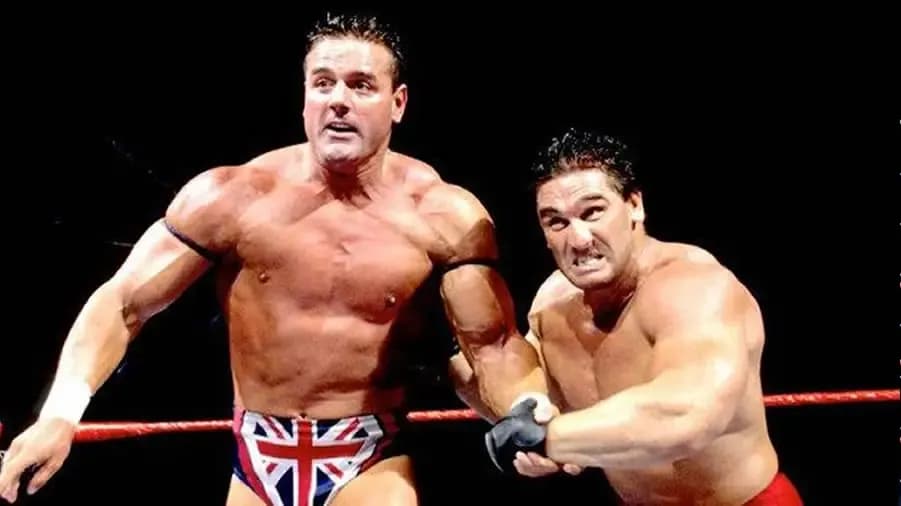
In his tenure with WWE, the company did a fair amount to keep Ken Shamrock strong, even in cases when he wasn't winning his matches. Instead of doing the job, Shamrock would be protected by getting disqualified for his uncontrollable fits of rage that would sometimes see him attack those who tried to calm him down.
Such an outburst would conclude his match with Davey Boy Smith for the European title as he would be DQ'ed, facilitating a melee. Shamrock would take to locking The British Bulldog in a Rear-Naked Choke, with a swarm of officials trying to pull him off. Shamrock then released the hold, but took to Suplexing the likes of Pat Patterson, Gerald Brisco, and a host of referees like an absolute wild man. Reportedly, Shamrock was a bit too vigorous and rough with his sequence of destruction that when the stunt was duplicated the following year at WrestleMania XIV, local indy guys were used as planted referees/collateral damage, instead of Shamrock throwing around 60-year-old road agents or frail officials.
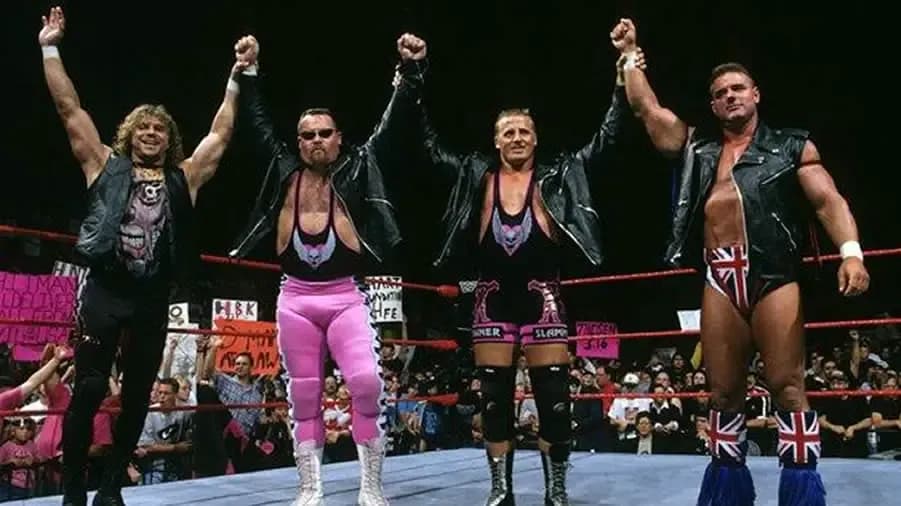
All five members of the Hart Foundation had something to gain or lose at SummerSlam, including Jim Neidhart, the only member of the quintet that was not in action. Each active Hart took part in a match with some sort of wager, and Neidhart vowed that if one of his fellow Foundation members lost, he would shave off his trademark goatee. Both Owen Hart and Brian Pillman were defeated at the show, but Neidhart never did shave off the whiskers.
Weeks before SummerSlam, Neidhart seemingly vanished from WWE television, apparently to fulfil some indy obligations, and would not return to the fold until well into September, more than six weeks after SummerSlam came and went. The goatee was still in tact, and WWE never made mention of Neidhart's boastful bet again.
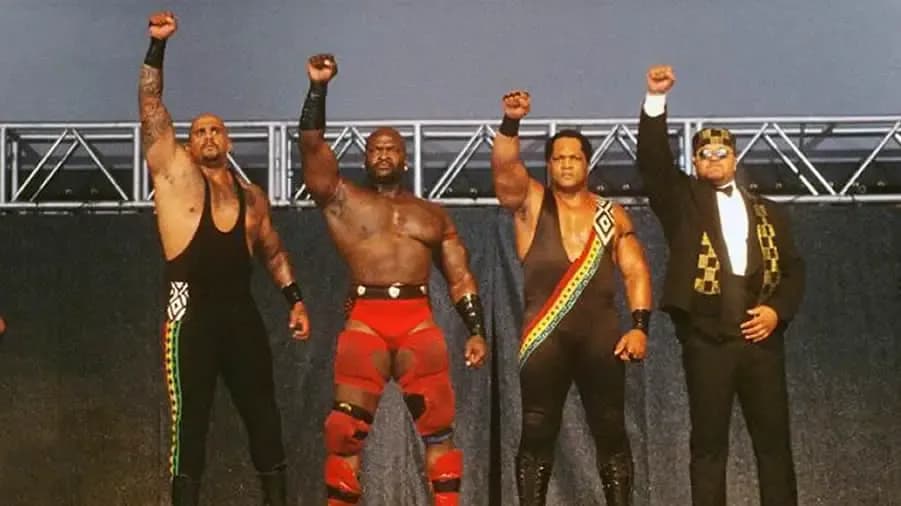
For as much obvious potential existed in the case of Ahmed Johnson, he would be plagued with some of the most poorly-timed injuries that a wrestler could sustain. His IC title run, as well as a feud with WWE Champion The Undertaker, were both derailed as a result of kidney and leg issues, respectively. Johnson, by now in the Nation of Domination, would only aggravate things further at SummerSlam.
Johnson's knee was still ailing when he and his fellow Nation members stormed the ring during an eight-man tag that pitted the DOA against Los Boricuas. During the melee, Johnson took DOA member Chainz and attempted to give him the Pearl River Plunge (seated Tiger Bomb) outside the ring. Apparently, Johnson attempted to compensate for his buckling limb, but somehow managed to re-injure himself in the process. The next night, Ahmed was written out after his fellow Nation-mates jumped him, setting the stage for The Rock to join the group one week after.

Who knows just how different the landscape of professional wrestling would have ended up had Austin's injuries been just a little more dire. Not to say that Austin made it out of SummerSlam unscathed, because he certainly didn't, as The Texas Rattlesnake would miss several months of action as a result of the botched Tombstone Piledriver at the hands of Owen Hart. Thankfully, he didn't wind up in worse shape.
According to Austin, Owen managed to talk him into letting him perform the sitdown version of the Tombstone. Austin wasn't comfortable with the idea at first, but reasoned that because he was working with a pro like Owen, he was probably in good hands. Interestingly, Owen had done the knees-drop version of the move before (including to brother Bret), so why he was insistent on doing the sitting variation is a bit of a mystery.
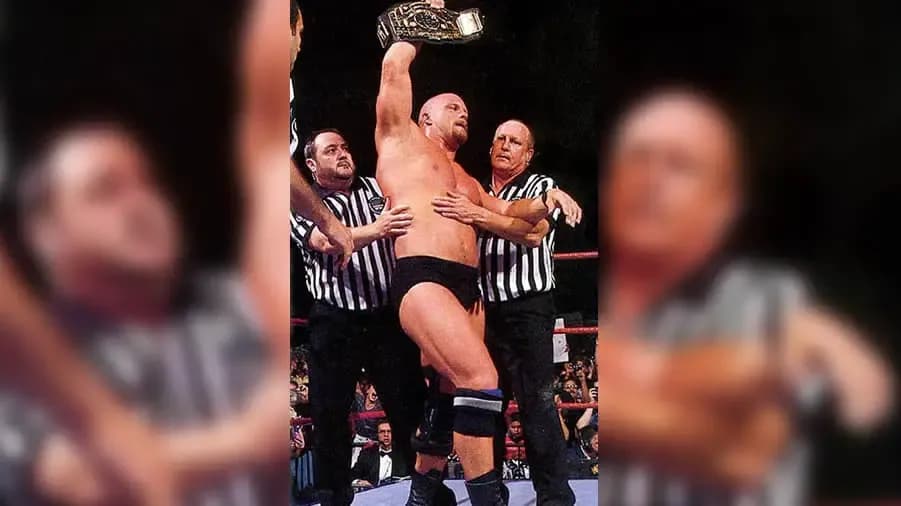
It's been noted in various places over the years that Austin largely refused to work with Owen as a result of the Piledriver gone wrong. There were brief moments together (notably the Survivor Series 1997 match), but Austin found it hard to forgive Owen for the accident. Stone Cold's ex-wife Jeannie Clark would even claim that Austin refused to attend Owen's funeral in 1999 due to the unresolved iciness between the two parties. Austin also claimed that Owen never reached out to apologize for the mistake, despite Bret insisting that Owen do so.
In an astonishing claim, Owen's widow Martha Hart wrote in her 2004 book that Owen thought Austin was faking his injuries. That sounds pretty far-fetched, given that nobody else has ever questioned Austin's condition that night or after the fact. Both Austin and Jim Ross have theorized that Owen felt such guilt and shame over what happened that he may have found it hard to openly acknowledge it.
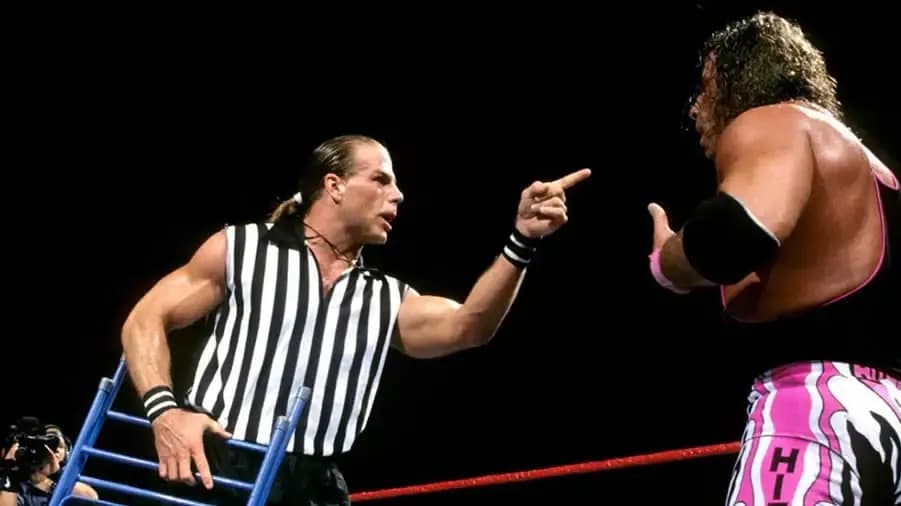
The main event saw Bret Hart defeating The Undertaker to become WWE Champion, following a grievous error from guest referee Shawn Michaels in the climactic moment. The win gave Hart his fifth WWE Championship, tying a then-record set by Hulk Hogan, who reached the five WWE Championships mark at WrestleMania IX just four years earlier. At the time, no other wrestler had held the belt on even three occasions.
Today, Hart's five reigns rank seventh overall in terms of WWE Championships held. Hogan would pass Hart during his 2002 nostalgia run, holding the belt once more for four weeks. Others that would eventually pass Hart included Steve Austin (6), The Rock (8), Randy Orton (9), Triple H (9), and John Cena (13).
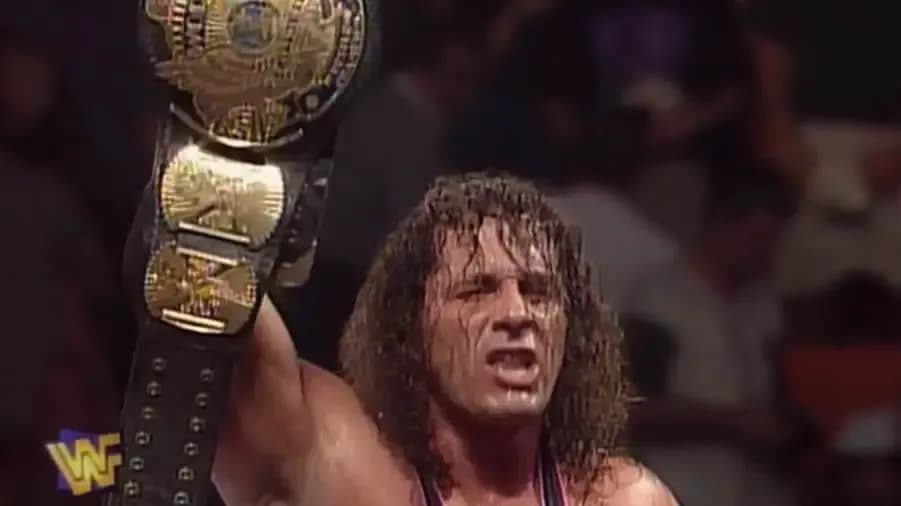
As Hart celebrated with his Foundation comrades at the end of the 1997 SummerSlam, few seemed to realize just what an unusual moment was taking place. Not Bret winning the WWE Championship (that was pretty commonplace), but the fact that the WWE Championship had just changed hands at SummerSlam. This was the first time in the event's history that WWE's richest prize would swap waists.
Previously, SummerSlam was a place for established champions like Hart, Ultimate Warrior, Shawn Michaels, and Diesel to get memorable victories during lengthy reigns. Some years, the belt wasn't even defended, as the champion would take part in tag team matches at the 1988, 1989, and 1991 shows. The only two other years in which it was defended, the champion would lose their match via countout: Randy Savage in 1992, and Yokozuna the following year. So Bret's victory was historic in not one but two ways.